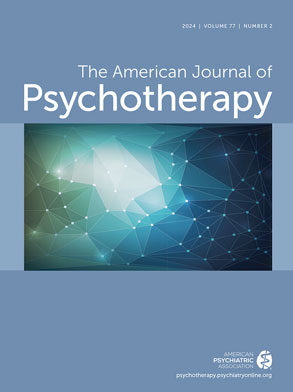Once again, in August mass shootings rocked communities across the United States, this time in El Paso, Texas, and Dayton, Ohio. Previously infrequent in this country, senseless acts of firearm-related violence have become almost commonplace. According to the Gun Violence Archive, there have been over 250 mass shootings so far in the United States in 2019 (
www.gunviolencearchive.org; accessed August 12, 2019). Innocent victims have been killed by firearms when grocery shopping, praying at a house of worship, attending a concert, and sitting in class. Safety can no longer be taken for granted in our daily lives.
As mental health professionals, we have important roles to play during these terrible times. When mental illness becomes a too-convenient scapegoat for wanton violence, we must advocate for our patients by pointing out that most people with mental illness are not violent and that they are far more likely to be victims than perpetrators. We should stand with the American Psychiatric Association’s president, Bruce Schwartz, M.D., who, in a press release, underscored the mental health impact of firearm-related violence and called for us to come together as a nation to address the epidemic of firearm-related injuries and death (
1). We should demand solutions to this crisis for the health and mental health of our patients and our communities.
Perhaps alone among the psychiatric armamentarium, psychotherapy stands out as a critically important means of helping both survivors of shootings and those affected by the current climate of violence. As psychotherapists, we should wield our tools wisely to combat the psychological consequences of unremitting violence. Psychotherapy is one of a few places where people can freely and safely express their feelings; it is a safe harbor in a sea of mistrust and worry. When mass shootings threaten core beliefs about civil society and human decency, psychotherapy allows patients to grapple with loss, explore feelings of dislocation, and forge a path toward psychological integration. For those who develop posttraumatic stress disorder (PTSD) following mass shootings, psychotherapy is the first line of treatment (
2). Therapists help individuals process trauma, manage feelings of vulnerability, and cope with uncertainty. These are critically important tools for managing the stress, anxiety, depression, and trauma engendered by mass shootings.
Recent articles in the
American Journal of Psychotherapy describe psychotherapy approaches that may benefit individuals affected by firearms violence. Chopko et al. describe mindfulness-based strategies that can be used to help first responders (
3). Busch et al. describe trauma-focused psychodynamic psychotherapy to address PTSD in a Veterans Health Administration setting (
4). In this issue, Rosmarin et al. describe SPIRIT, a nondenominational, spiritually integrated psychothotherapy for high-acuity care settings that draws on spiritual concepts to address emotional difficulties. This approach incorporates a dimension of the human experience that may be especially relevant to individuals and communities who use faith to help them navigate the consequences of violence (
5). Each article provides a roadmap—albeit using somewhat different roads—to address challenges experienced by patients affected by mass shootings. In addition, it may be helpful to refer individuals to evidence-informed resources for coping with mass shootings developed by Helping Give Away Psychological Science (HGAPS) (
https://en.wikiversity.org/wiki/Helping_Give_Away_Psychological_Science/Coping_with_shooting).
Psychotherapy can help our communities in the aftermath of mass shootings. It is a first-line treatment for PTSD and a means of supporting those affected by violence more broadly. As therapists, we should advocate for our patients, offer a safe place for emotional exploration, and utilize psychological strategies to promote healing. Without transgressing boundaries, we can genuinely connect with our patients, acknowledging that we, too, are affected by and condemn these horrific acts. In the final analysis, however, psychotherapy is not enough. The scourge of mass shootings must end, and our most important task is to work with legislators to ensure that firearm-related violence ceases.

